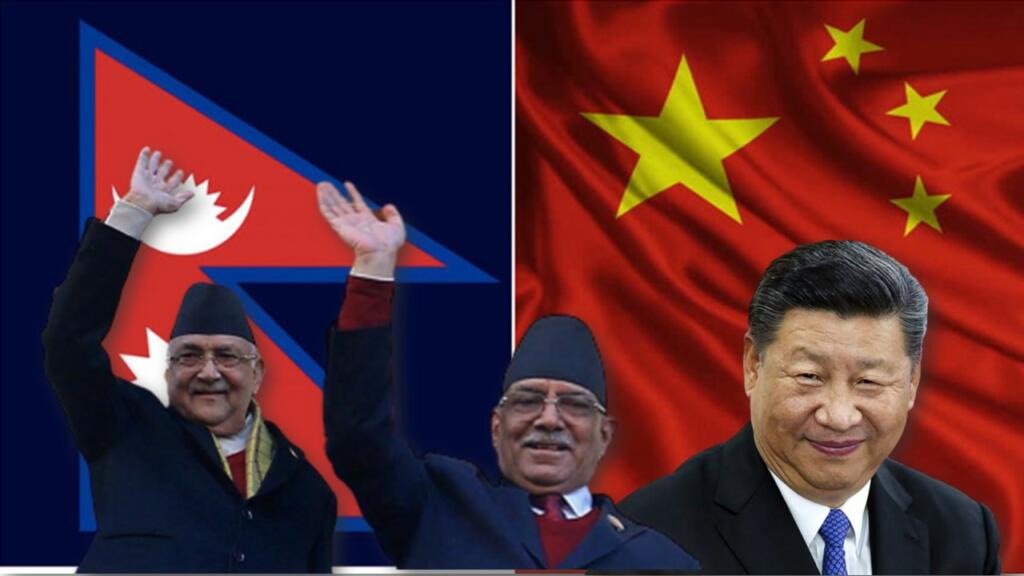Nepal’s New PM Prachanda: Openness in a society has become an exploitative tool for dictatorial regimes like China to subjugate democracies around the world. These authoritarian regimes are becoming more effective at co-opting and circumventing the laws and institutions meant to support democratic norms. By exploiting the inherent flaws in the openness of democratic setup, these authoritarian regimes have been gaining great success in tilting the democratic countries to their side.
The best examples of subjugation of a democratic setup were witnessed in our neighbouring nations, Sri Lanka and the Maldives. Now, it is visible in full glare in the Himalayan nation of Nepal.
Overnight change of “conscience” in Nepal politics
On December 25, Nepal witnessed the unfolding of Chinese script as the political landscape of the Himalayan nation turned on its head. In a dramatic turn of events on Sunday evening, former PM “Prachanda” dramatically emerged as the Prime Ministerial choice.
It is worth noting that just hours earlier, comrade Prachanda had unexpectedly walked out of the ruling alliance led by former Prime Minister Sher Bahadur Deuba.
Also Read: Nepal: Another Sri Lanka in making
The new alliance between Prachanda and KP Oli was forged against the backdrop of a fractured mandate in the general election held a month earlier. In the run-up to the elections, Pushpa Kamal Dahal, aka Prachanda, had stitched a pre-poll alliance with five parties. Till Sunday, the pre-poll alliance was led by Nepali Congress President and outgoing Prime Minister Sher Bahadur Deuba.
Media reports claim that Prachanda and former Nepali PM KP Sharma Oli outsmarted the outgoing PM. But the changed political landscape speaks for itself: the outcome has a Chinese imprint written all over it.
How has China subjugated the mandate of Nepalese voters?
The general elections in Nepal were held last month but failed to give a clear winner. However, the Nepalese voters had given a clear edge to the Deuba-led Nepali Congress. In the election results, it emerged as the single largest party with 89 seats in the 275-member Pratinidhi Sabha, the Lower House in Nepal.
The Sunday drama was played at the behest of China. KP Sharma Oli, a pro-China, or rather seemingly a Chinese stooge, was successful in convincing former Maoist guerrilla leader Prachanda to switch sides. Interestingly, the Chairman of the Communist Party of Nepal—Unified Marxist Leninist (CPN-UML), KP Sharma Oli, agreed to let the minor alliance partner have the first hand at governance of the nation in a rotational agreement for the top post. In the last month’s general elections, the Oli-led CPN-UML and Prachanda-led CPN-MC had won 78 and 32 seats, respectively.
Also read: Lesson from Nepal: Throw out communists if you want Hinduism to prosper
Later on the day, Prachanda met with Nepal’s President Bidhya Devi Bhandari, with a claim to have the support of 170 parliamentarians hailing from six parties and four independents. Thereafter, on December 26, Prachanda was sworn in as the new Prime Minister of Nepal.
Indian PM Narendra Modi sent a congratulatory tweet to the new PM of Nepal, Pushpa Kamal Dahal.
Warmest congratulations @cmprachanda on being elected as the Prime Minister of Nepal. The unique relationship between India & Nepal is based on deep cultural connect & warm people-to-people ties. I look forward to working together with you to further strengthen this friendship.
— Narendra Modi (@narendramodi) December 25, 2022
But the newly elected pro-Chinese government is not a good sign either for the democratic structure of Nepal or India. It is important to note, that out of the three senior Nepalese leaders, PM Deuba was regarded as the more centric leader, who attempted to balance Nepal’s relations with India and China. However, in the anti-India rhetoric by his rivals, he too had jumped on the anti-India bandwagon.
Contrary to him, KP Oli was playing the role more of a Chinese stooge rather than a Sovereign leader. Back then, he carried out the Chinese agenda on the dictates of former Chinese Ambassador Hou Yanqi. To please his Chinese masters, Communist and so-called atheist KP Oli had started to provoke India with his religious claims about Bhagwan Shri Ram. Further, he has a long and non-exhaustive list of anti-India acts.
Similarly, Prachanda had led a decade-long insurgency against Nepal’s Hindu monarchy. An alliance of these pro-Chinese leaders is a matter of great concern for the sovereignty of Nepal and Indian foreign policy.
Support TFI:
Support us to strengthen the ‘Right’ ideology of cultural nationalism by purchasing the best quality garments from TFI-STORE.COM
